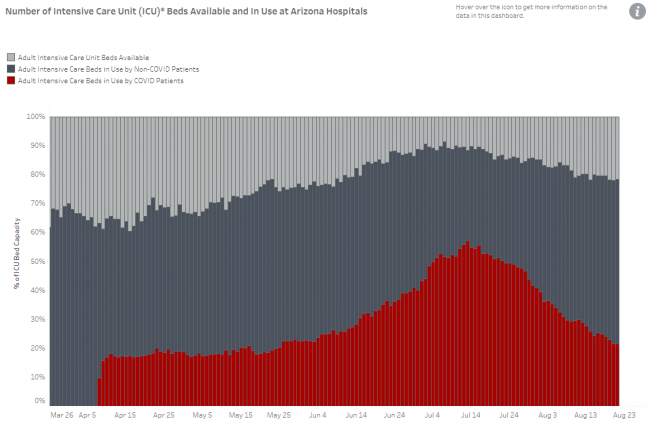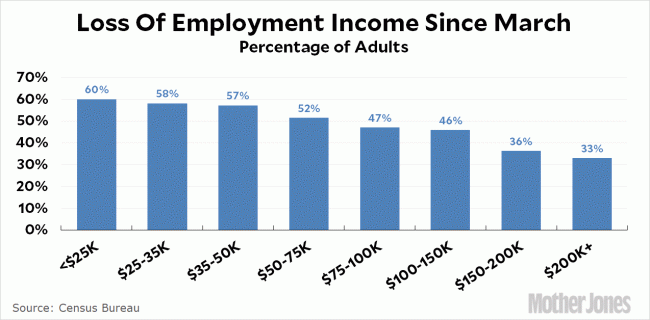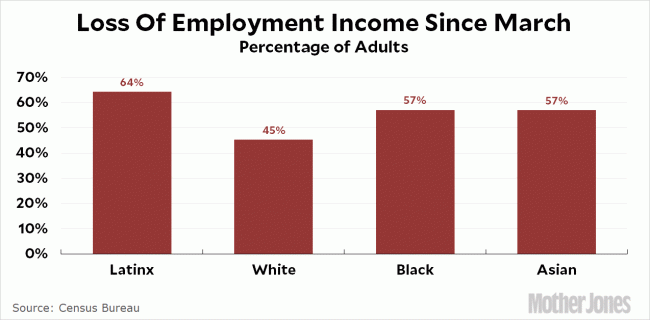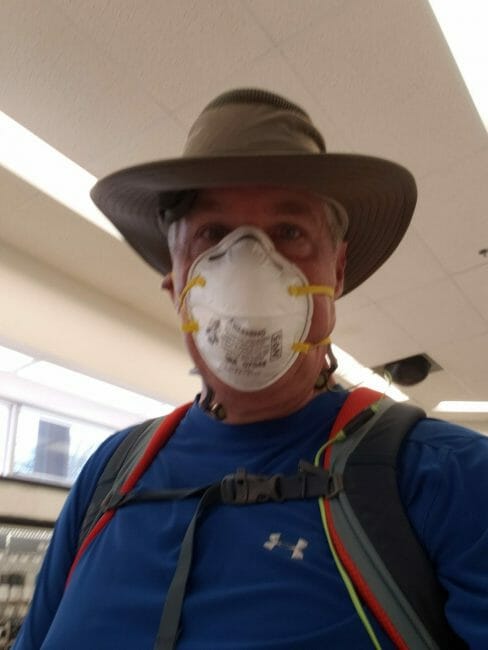"Work From Home & Socialize via Zoom" Is the Height of Elite Priviledge
I have been pointing out since April that stay at home orders tend to be supported by folks who either a) are rich with lots of savings; b) have professional jobs and can work from home (eg journalists) or c) get paid even if they don't work (eg government workers and teachers). A lot of folks on the Left that lecture the rest of us constantly on privilege have shown zero self-awareness in advocating for the most privilege-biased government order in my memory.
So it should not be shocking that the results of the COVID business lockdowns have disproportionately hit lower income and less educated workers. From the WSJ:
A two-track recovery is emerging from the country’s pandemic-driven economic contraction. Some workers, companies and regions show signs of coming out fine or even stronger. The rest are mired in a deep decline with an uncertain path ahead.
Just months ago, economists were predicting a V-shaped recovery—a rapid rebound from a steep fall—or a U-shaped path—a prolonged downturn before healing began.
What has developed is more like a K. On the upper arm of the K are well-educated and well-off people, businesses tied to the digital economy or supplying domestic necessities, and regions such as tech-forward Western cities. By and large, they are prospering.
On the bottom arm are lower-wage workers with fewer credentials, old-line businesses and regions tied to tourism and public gatherings. They can expect to bear years-long scars from the crisis.
The divergence helps explain the striking disconnect of a stock market and household wealth near record highs, while lines stretch at food banks and applications for jobless benefits continue to grow.
These charts are telling:


One other observation -- I think the second part of the statement in the title to this post is important as well. I am not an expert on ethnic and cultural variations and practices. However, I have been lectured by the woke that cultural differences are important, including a memorable twitter argument about whether expecting workers to show up on time is racist. It has been my observation that different cultures satisfy the human need for socialization differently. In my world, you often see white families in parks gathered in small nuclear families, while other cultures might have 25-30 person extended multi-generational families with them.
I wish I had more background on this topic, but it is my hypothesis that the government's lockdown orders may well disproportionately harm ethnic minorities. In general, we Westerners are more used to getting by individually or in small nuclear family groups (though remember that even for whites, solitary confinement is generally the ultimate societal punishment short of the death penalty). I think there is a good chance other cultures more used to relying on larger networks and multi-generational extended families are having a particularly hard time with the order to limit social contact to zoom.



